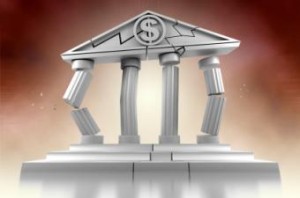 Only a week after the latest collapse, federal regulators announced the closure of yet another government-insured bank, bringing the year-to-date tally to 16.
Only a week after the latest collapse, federal regulators announced the closure of yet another government-insured bank, bringing the year-to-date tally to 16.
The Office of the Comptroller of the Currency (OCC) announced Friday the shuttering of the National Republic Bank of Chicago, appointing FDIC as receiver.
As of the end of Q2, National Republic Bank had approximately $915.3 million in total deposits and $954.4 million in assets. To protect depositors, FDIC arranged a purchase and assumption agreement with the Dallas-based State Bank of Texas, which has taken on all of National Republic Bank's deposits and nearly two-thirds of its assets. FDIC will retain the remaining assets for disposition in the future.
The shutdown comes months after the agency ordered the bank to dismiss both its chairman/CEO and president as it slipped into an undercapitalized position. OCC also directed National Republic Bank to cooperate with regulators and make preparations to minimize the hit to FDIC's insurance fund in the event of its closure.
FDIC estimates the cost of the collapse to its Deposit Insurance Fund will be $111.6 million.
National Republic Bank marks Illinois' fifth bank failure so far this year, making the state by far the most active. Three of those closings were in the Chicago area, including the last one in July.

 theMReport.com Your trusted source for mortgage banking news
theMReport.com Your trusted source for mortgage banking news








